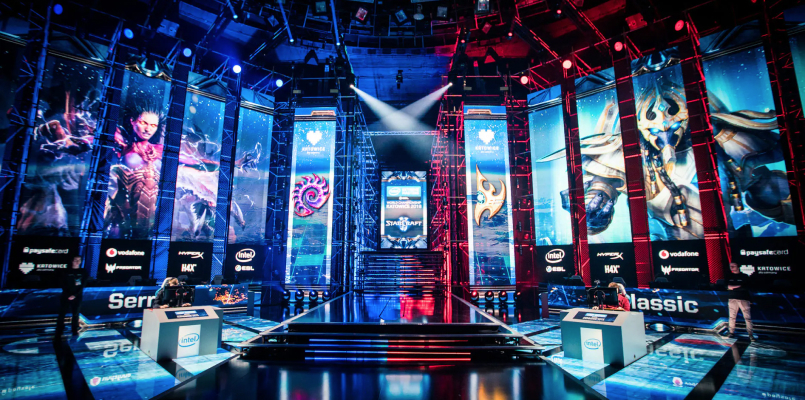Big Oil's Infiltration of Youth Gaming: A New Kind of Environmental Threat
- Sports Formula
- Sep 21, 2024
- 3 min read
The world of esports and gaming is experiencing an unsettling trend. The rapid expansion of this industry has not only made it a prime target for sponsorships but also an entry point for big oil companies and major polluters aiming to influence the next generation. This practice, now known as "e-sportswashing," is creating an alarming connection between climate-damaging industries and young, impressionable gamers.
The Language of Gaming Meets Environmental Deception
Terms like “camping,” “crafting,” “cheesing,” and “griefing” might seem like jargon from a video game manual, but they also serve as metaphors for how major polluters are engaging with the esports world. These gaming tactics – holding advantageous positions, combining items for an edge, using dishonorable methods, or sabotaging others – are disturbingly similar to how big oil is trying to win over young minds through sponsorships.
Esports as a Target: Why Now?
With over 3 billion gamers worldwide and an esports audience projected to reach 500 million dedicated fans, the gaming industry represents a goldmine for brands looking to connect with younger demographics. It’s not just about being where the kids are; it’s about shaping perceptions early on. Companies that contribute heavily to carbon emissions have started sponsoring esports teams, tournaments, and events to create a more positive image and distract from their environmental damage.
Fossil Fuel Companies Moving into Esports
In recent years, fossil fuel giants, automotive manufacturers, military entities, and petro-states have all invested in esports sponsorships. Their aim? To boost their image among younger audiences who are otherwise increasingly conscious of climate issues. For instance:
Saudi Arabia and Qatar, nations whose wealth is largely tied to oil, have been particularly aggressive, sponsoring esports events and even hosting major tournaments.
Shell’s partnership with Fortnite in 2023 was a wake-up call for many. They created a branded in-game island where young players could fill up their virtual cars at Shell stations, encouraging social media engagement with the hashtag #Shellroadtrips.
These tactics resemble how the tobacco industry once marketed itself to younger generations, aiming to normalize harmful products before regulations were put in place.
The Influence Game: How Big Oil Aims to ‘Grief’ the Planet
By sponsoring esports events, big oil is attempting to change its image and align itself with something fresh, exciting, and popular. But in reality, this amounts to the ultimate case of “griefing” – a gaming term for ruining the experience for others. In this case, the “others” are not just the players but the planet itself. These companies are, in effect, using deceptive sponsorships to promote lifestyles and products that directly contribute to climate change.
Youth as the Main Target: Why This Matters More Than Ever
Younger generations, who have the most to lose from climate change, are the main targets of this advertising. The esports audience is predominantly young, with many players aged between 10 and 25 years old. This demographic is especially susceptible to misleading greenwashing tactics, which could normalize environmentally destructive behaviors at a crucial time when urgent climate action is needed.
The Need for Tobacco-Style Advertising Bans
To combat this form of e-sportswashing, tighter controls on sponsorship and advertising for high-carbon industries are essential. Just as tobacco advertising was banned for its harmful effects, so too should the promotion of fossil fuel companies be restricted, especially in youth-oriented spaces like esports.
Gaming’s Role in Shaping the Climate Narrative
Esports has the power to influence behavior, build communities, and shape societal norms. If esports continues to allow sponsorships from companies whose products are worsening climate change, it runs the risk of not just enabling these brands but amplifying their message to millions of impressionable young people.
A Call to Action: Clean Up the Game
In gaming, the practice of “crafting” represents the act of combining different elements to create something new. Similarly, we must craft a new future where esports champions sustainability rather than environmental destruction. We need regulatory bodies, esports organizations, and the gaming community to recognize the dangers of e-sportswashing and act collectively to end it.
By rejecting sponsorships from polluters, the esports industry can take a stand and set an example, showcasing that it is possible to thrive while advocating for a healthier, more sustainable planet.
Conclusion: Leveling Up Against Climate Injustice
Big oil’s move into esports is not just a marketing strategy; it’s an attempt to reshape narratives and win over a generation that will soon be at the forefront of climate activism. By understanding and rejecting this tactic, gamers, teams, and organizers have the power to push back and ensure that esports becomes a space for positive influence, innovation, and a greener future.
It’s time to “grief” big polluters out of the game and ensure that esports remains an arena of creativity and connection, not a playground for climate destruction. Together, we can level up and create a future where esports truly reflects the values of the young gamers who love it. 🎮🌿







Comments